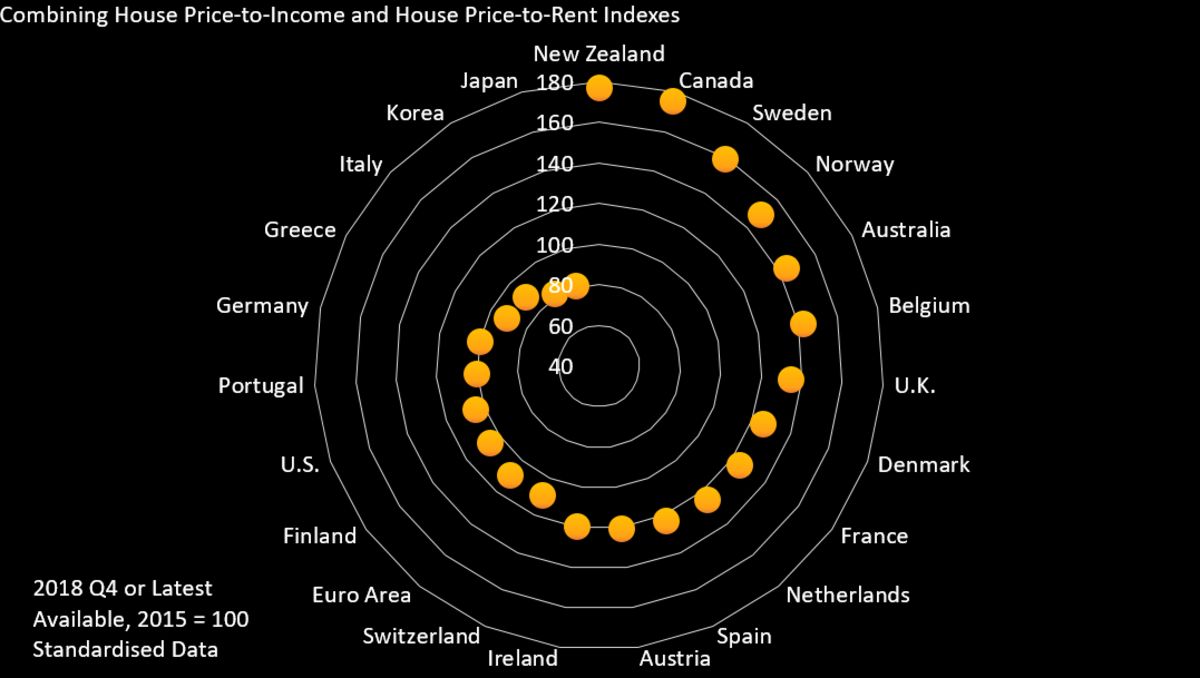On this first day of August 2019, a day after the US Federal Reserve blinked and launched into its first rate-cutting cycle in a decade and abandoned plans to run down its QE-bloated balance sheet (via QT), it will not be long before the Bank of Canada follows suit. Some key themes are driving the sound of inevitability here:
-
- Wage gains have failed to keep pace with large increases in shelter and education costs over the last decade in particular.
- Corporations and households are maxed out on debt, and without higher wages/revenues cannot carry more debt notwithstanding already low interest rates.
- Each month in 2019, consumer insolvency trustees have reported record applications, with July being reportedly the busiest in 20 years.
- Similar themes are weighing on our largest trading partner to the south, see Families go deep in debt to stay in the middle class.
- On critical home price-to-income and home price-to-rent ratios, Canada is second only to New Zealand as the two most unaffordable housing markets in the world, and this has made Canada set for a big drop in home prices, according to new reports (chart below).

- While consumption drivers are understandly in retreat, so too is business investment because so far Canada remains dependent on a fossil fuel sector from which the world is divesting. See Blackrock lost $90 billion investing in fossil fuel companies, report finds:
A report from the Institute for Energy Economics and Financial Analysis (IEEFA) has found that BlackRock has eroded the value of its $6.5tn funds by betting on oil companies that were falling in value and by missing out on growth in clean energy investments…
The report follows a stark warning from the Bank of England over the “significant risks to the economy and to the financial system” posed by fossil fuel investments.
The Bank has estimated that investments worth $20tn could be left “stranded” as governments set more ambitious climate targets.
Thirty-five years of slashing interest rates and increasing debt to stimulate consumption are now out of meaningful torque. Going forward will require heavier lifting in the form of diversified investment and innovation away from traditional engines like housing and oil and into new rapidly growing sectors in high demand. Just one such example: the global movement toward plant-based foods is an opportunity for Canada, see Pulse of the Nation: How Beyond Meat could turn this humble pea into Canada’s new gold.


